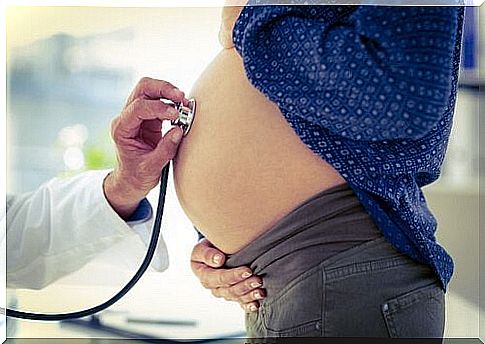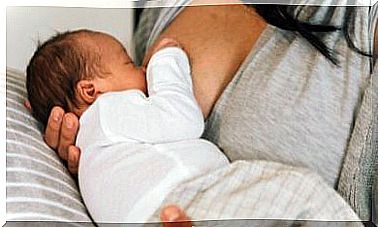The Most Frequent Pregnancy Complications – Being Parents

While some pregnancy complications are usually mild, others can be more serious and we need to be aware of them. It is essential to know the symptoms considered to be serious at the time of pregnancy. Thus, we will avoid affecting the health of the baby or, in the worst case, losing it.
As soon as these symptoms appear, the attending physician is responsible for carrying out the corresponding examinations. If an anomaly is noted, the necessary actions will be taken. In order to prevent any risk to the baby, we present to you some of the most common pregnancy complications.
The 6 most common pregnancy complications
1. Insufficient amniotic fluid or oligohydramnios
The amniotic sac is responsible for protecting and supporting the correct development of the baby during pregnancy. A small amount of amniotic fluid could therefore become a complication of pregnancy.
Therefore, the family doctor will take care of detecting any anomaly at this stage of the pregnancy. In case this complication is detected at the end of gestation, childbirth will be induced.
2. Placenta previa
Having placenta previa means it’s misplaced, it’s too low in the uterus. At the start of pregnancy, this is not a major inconvenience. But if the position persists until the end of the gestation process, the mother could bleed or give birth prematurely.

3. Pregnancy complications: gestational diabetes
If you have diabetes during pregnancy, your doctor will check your blood sugar levels throughout gestation. In order for the mother-to-be to stay healthy and her sugar levels stable, you need to change the diet and exercise.
Indeed, if gestational diabetes is not managed properly, it could have serious consequences on the health of the baby.
4. Premature birth
In general, premature deliveries are not a major cause for concern and tend to happen quite often. However, sometimes they can become a significant pregnancy complication.
If you start having contractions before week 37 of pregnancy, the birth may take place before the baby’s agreed healthier term.
5. Preeclampsia
This condition consists of high blood pressure caused by pregnancy. It occurs because the placenta generates substances that clog the arteries. This leads to high blood pressure, swelling that does not go away, and too much protein in the urine.
“If they are treated in time, pregnant women with preeclampsia will not suffer the negative consequences”
6. Pregnancy complications: reduced movement of the baby
Babies begin to perform movements from week 7 or 8 of pregnancy. But, often this is not noticeable for the mother because they are still too small.
The baby begins to be felt as early as week 16. However, some mothers notice it from week 20. A sudden decrease in fetal movement can be the start of pregnancy complications. Therefore, monitoring must be carried out immediately.

Complications that may arise during childbirth
Although births are currently adequately assisted, some countries are not yet prepared. Unfortunately, even those with the best facilities and services are not immune to any eventuality that may arise.
This can cause health problems for the baby, such as cerebral palsy or other illnesses. And in the worst case, there are cases of death, both for the mother and the baby.
For more specific information, here are some complications that can arise during childbirth:
- Contractions during dilation are often ineffective. The uterus then loses its capacity and labor stagnates.
- Premature birth: If the baby is born before week 37, this is considered a premature birth. This advance can be generated by uterine abnormalities, malnutrition, maternal illness, infections and other unknown causes.
- Position of the fetus: Monitoring by the family doctor is essential to determine the position the baby is in or whether the umbilical cord is wrapped around his neck.
- Fetal distress: This may be due to decreased or interrupted oxygen flow due to complications during childbirth.
Finally, it is essential that the mother-to-be informs her doctor in case she notices any abnormalities during pregnancy. This will prevent the baby from having birth difficulties or health problems.
The possible complications of pregnancy are numerous but they can be treated if the problem is detected in time.









